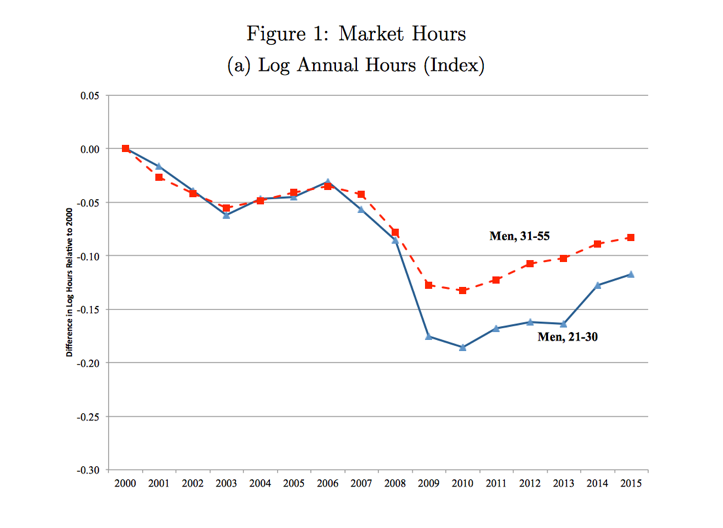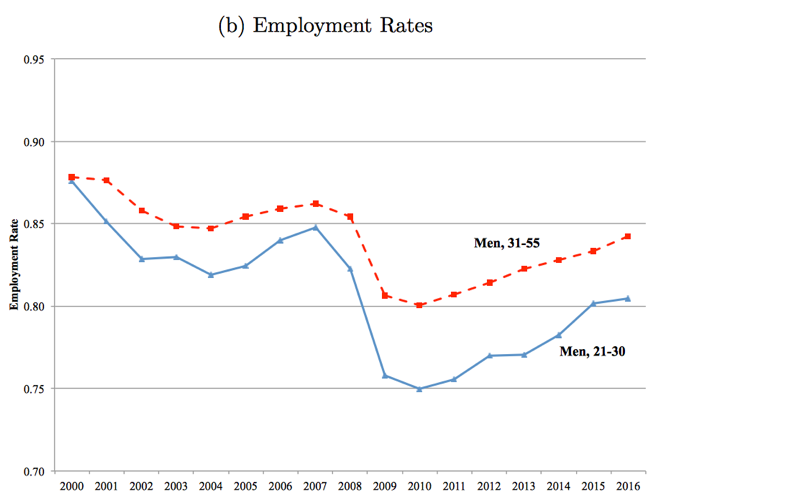Study Confirms Millennial Men are Still Playing Video Games in Their Parents’ Basements
For many years now, adults have been accusing young people of playing too many video games. Kids have snapped back, saying, “It’s my life. I can do what I want with it.” While middle schoolers pulling all-nighters on Fortnite may not be a huge deal, it is a different story now that Millennials are in their 20s and still refuse to put down the controller.

A recent study compared how people spent their time in 2004-07 to 2012-15. The findings were quite striking, especially among men aged 21-30. A growing share of young men are spending excessive amounts of time playing computer games, and this is, in fact, reducing their labor force participation.
All groups of people are enjoying more “leisure” time, which is generally time that doesn’t contribute to work, education, or house production. Young men however, increased their leisure time much more than the other groups, spending 63.4 hours per week on leisure activities in the 2012-15 period. This is over half the 119 hours per week after seven hours per day are allotted for basic sleep and eating.
Almost all of the additional leisure time can be attributed to recreational computer time, which is dominated by video game play. The average young man spent 5.2 hours a week on recreational computer time, almost an hour every day. Over the same period, women and older men did not see a significant change in computer time.
The reason this is important is because young men are spending less time in the labor market relative to their older counterparts. Take a look at logged annual hours and employment for young men compared to older men since 2000.
As you can see, it is clear younger men are not coming out in the numbers they were before the video game boom. How much of the gap is directly attributable to increase in recreational video games? The authors estimate 38-79 percent after creating a model that values different types of leisure activities.

Given that so many more young men aren’t working, you may be wondering how they are getting by. The stereotypes relating to this topic appear to be spot on. In recent years, the share of young people living with parents or close relatives has increased significantly. For example, in 2000, 23 percent of men aged 21-30 lived with a parent or close relative, but by 2015, that number surged to 35 percent.
The authors also suggest that parents tend to insure their children’s consumption, meaning that if a young adult loses his or her job, he or she has a much greater chance of receiving aid from Mom and Dad.
It looks like your drunk uncle may have been right about this one. Sometimes in economics, things aren’t as straightforward as they appear. Other times, the explanations are truly that obvious.
Andrew Scattergood is a summer intern with the Center, a senior finance major at the University of Minnesota’s Carlson School of Management, and a graduate of Wayzata High School.